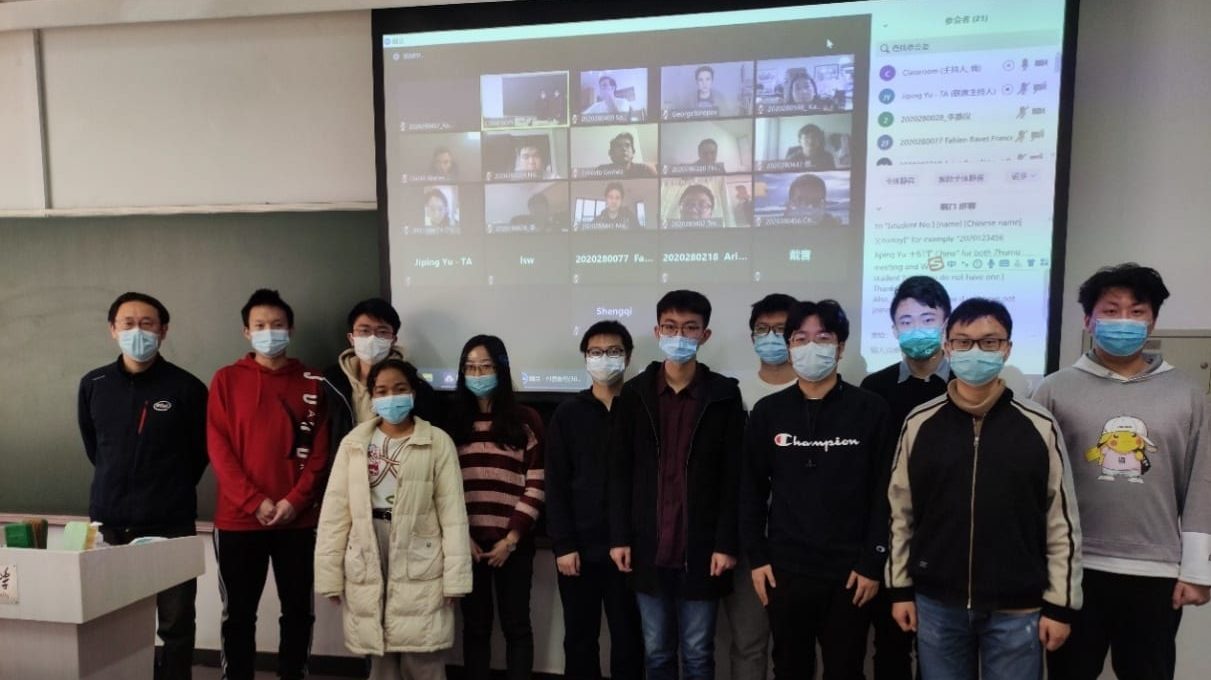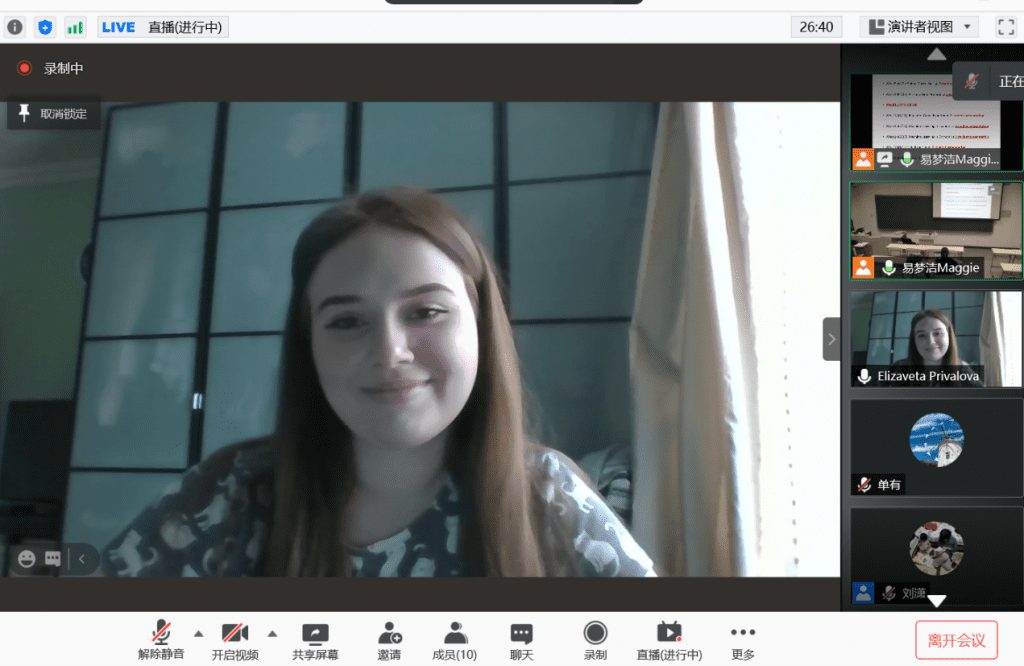At the beginning of the 2021 Spring semester, Tsinghua University launched the “Global Hybrid Classroom” project, leveraging hybrid education to share the vision of a more innovative, integrated, and international education, regardless of physical distance.
Through the project, students from both Tsinghua and leading overseas universities will have the opportunity to take online courses hosted by different universities and obtain credits.
As the first phase of the project, 17 of Tsinghua’s hybrid classes are open to the founding members of the Global MOOC Alliance, including Russia’s St. Petersburg State University, Singapore’s Nanyang Technological University, and Italy’s Politecnico di Milano, covering a wide range of fields such as computer sciences, economics, humanities, architecture, civil engineering, electronic engineering, and languages.
“The possibilities of communicating with people from different countries and cultural backgrounds on campus are limited,” said Yang Bin, the Vice President and Provost of Tsinghua University. “Through creative education technology and curriculum design, we can provide our students with a more imaginative space, lead them to a broader journey, and in the meantime, help to shape a resilient educational system that faces the globalization era and the future.”
68 students from St. Petersburg State University have joined the project in the first week of its launch. Tsinghua students will also be able to join overseas universities’ classes, including RWTH Aachen University, Nanyang Technological University, Rice University, and the University of Toronto, and other overseas universities in the near future.
“Using innovative education methods, the project aims to nurture talent by providing students with a more international, diverse, and high-quality learning experience, and helping them to shape a global perspective,” said Professor Chen Wenguang from Tsinghua’s Department of Computer Science and Technology.

“The project provides an opportunity for leading universities around the world to pool high-class education resources together,” said Shen Yuan, Associate Professor from Tsinghua’s Department of Electronic Engineering. “It allows students from different regions and cultural backgrounds to exchange opinions and inspire each other in the same ‘classroom’, creating a more international and open education scenario.”
Associate Professor Liu Xiao from Tsinghua’s School of Economics and Manage-ment has opened three courses this semester, including “Behavioural Economics” and “Experimental Economics”, which will involve a lot of research on China’s digital economy platform.
“On the one hand, this is an opportunity to enable foreign students to understand the development of the digital economy in China,” Liu stated. “On the other, through in-depth exchanges between Chinese and foreign students, they can grasp a clearer understanding of the diverse results generated by identical economic mechanisms across different countries and regions. This further promotes the importance of recognizing international differences and promoting global exchanges.

Associate Professor Yang Fang from the Language Center of Tsinghua University expressed her expectations for the project. “Students can share their research with their peers from around the world through group academic exchanges during and after the class, learn to communicate with people from different cultural backgrounds and enhance mutual understanding,” said Yang.
Fedor Ivachev, a Russian postgraduate from the Tsinghua Department of Computer Science and Technology, nominated himself as a teaching assistant.
“As a Russian, I am happy to help my peers from St. Petersburg State University.” Fedor said, “This is a good opportunity for them to understand Tsinghua and get access to the courses here. I hope that the project can help stimulate more in-depth exchanges and cooperation between universities in Tsinghua and Russia.”
In the future, Tsinghua will further enhance cooperation with other universities, continue to summarize the experience of large-scale online education amid the COVID-19 pandemic, use information technology to transform education concepts, reform education models, and continue promoting international cooperation in higher education to bolster a more open, integrated and resilient university.
(This article was originally published on https://news.tsinghua.edu.cn/en/info/1012/10746.htm)
